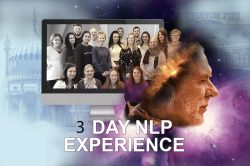Jimmy Carr took a course by one of our NLP trainers a few years ago; he stood up and announced that he wanted to be a comedian. Years later we all know he still wants this ambition! OK, cheap shot as he’s not here to answer. Yet whatever you think about him, he’s got to where he wanted to be – through NLP to comedy! Can learning how to do stand-up comedy change the way you think or improve your life?
Kyle Cease and stand up
Taking a stand up comedy class used to mean learning how to write material, hold the microphone, or talk to the audience. Kyle Cease’s enthusiasm for neuro-linguistic programming (NLP), says there is a new school of thought on teaching stand-up comedy.
“I find that when people go to classes and they just say ‘Oh this is how you write a joke. Set up, punch, set up, punch, punch. . .’ and they just give the standard format, that actually decreases your comfort bubble because it makes you constantly wonder if you’re doing it wrong.” Cease says. “It confines your comedy and the truth is comedy is not like that. It can be but it doesn’t have to be.”
NLP was originally created in the 1970’s as a sort of rapid form of effective psychological therapy. Its self-determination elements made it extremely popular and today is now available in workshops, videos, books, and audio programs worldwide. Early on in Cease’s comedy career he experienced severe anxiety before going up on stage. Fearful of fainting during his act, he would cling to the microphone stand and focus intently on standing firmly on stage so as not to get dizzy and pass out.
You can see an example of this stage fright during his Premium Blend appearance on Comedy Central. An almost always animated comic, Cease stood nearly completely still while never letting go of the mic stand. For Kyle, comedy had become a prison. After spending several months studying books about human thought and NLP, he acquired the tools needed to conquer his fears on stage and instead link the idea of the stage to euphoria.
From that point on, Kyle’s passion was divided between doing stand-up comedy and teaching people what he had learned. He believes that comedy could again be enormous but to do that we need comics that help other comics. Today, Kyle has developed a way to incorporate NLP into a new comedy coaching method.
“Comedy is you telling the audience something – not asking them,” Kyle says. “The audience is coming into our home and it’s no different than when you throw a party. You’re excited about it. You’re free to roam around on that stage and the audience is forced to sit buckled into a chair and pay money to watch you. I find a lot of comedy classes can be detriment because they tell you that you have to do this and they make you think you’re not nearly ready – but the truth is you are.”
New-comers to the industry looking to get schooled, may find themselves in a class similar to the one featured on Borat where an actual teacher instructs Sacha Baron Cohen’s character to use ‘Not’ jokes. A recent article from Uncabaret.com suggests that comics should not wear the colour white on stage as it seems to be a comedy killer. Whether or not you agree with that, one thing is certain the ultimate comedy killer can be letting the audience smell fear.
“What a lot of comics do when they find out they have a show is they immediately think of the last show they had that didn’t go that well and then they immediately picture the show they are going to do and they subconsciously link their last bad show to the next upcoming show,” explains Cease.
A popular and simple NLP technique known as Anchoring is used to recall past resourceful and joyous states of mind with the goal to anchor those thoughts or states of mind to make them available in new situations. In the same way a certain smell can conjure up memories of your childhood, Anchoring is suggested to be able to condition the mind and elicit the same sort of automatic response. Only in this case, the response and situation have all been put in place with purpose. A stand-up comedian would stand gain complete confidence over themselves and their performance by mastering this sort of technique.
“What I’m doing is giving them the tools to learn to link the stage to euphoria. Like a 5 year old about to go onto the playground or a perv about to go into the playboy mansion or a drug addict about to go into a bong factory.”
While NLP has shown to be highly effective for motivational speakers, life coaches, or therapists, it shouldn’t be expected to turn you into something you aren’t. No amount of NLP will transform a limbless man into the next Michael Phelps. So what if a student just didn’t have what took to be funny?
“I do think that it helps to have a sort of natural sense of timing. I also think there’s a lot of comedians that were a matter of work over talent. There’s a lot of people that put in the work and there are a lot people who are naturals. Yes, there are people who have come into the room who don’t have a sense at all of comedic timing but they also hadn’t been in the comedy world before or at least enough to have an understanding of it yet. I think that I can break them through that and get them to that point. I truly believe that.”
For more information on NLP you can look up recommended book titles such as Knowing NLP & The Teachers Guide to NLP, both available at Amazon.com




